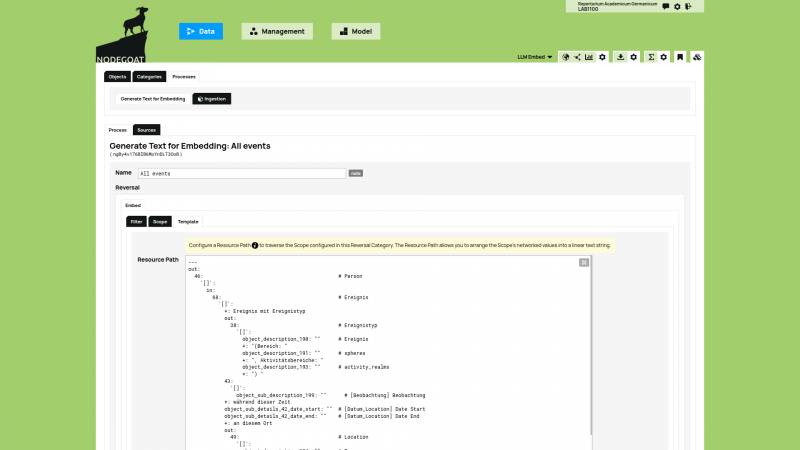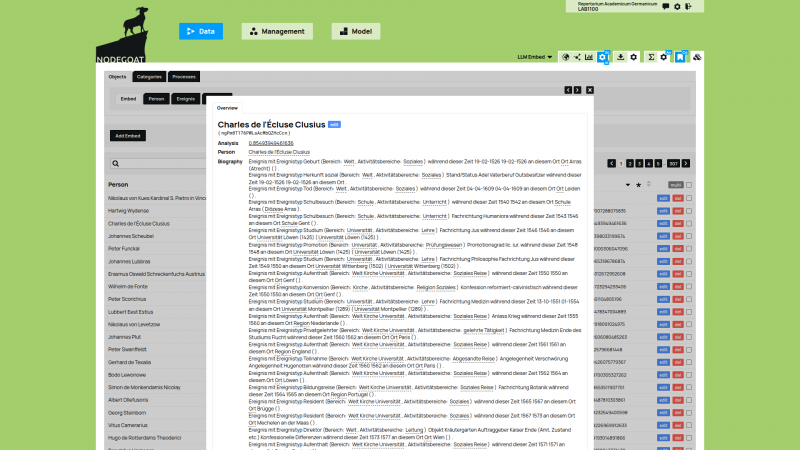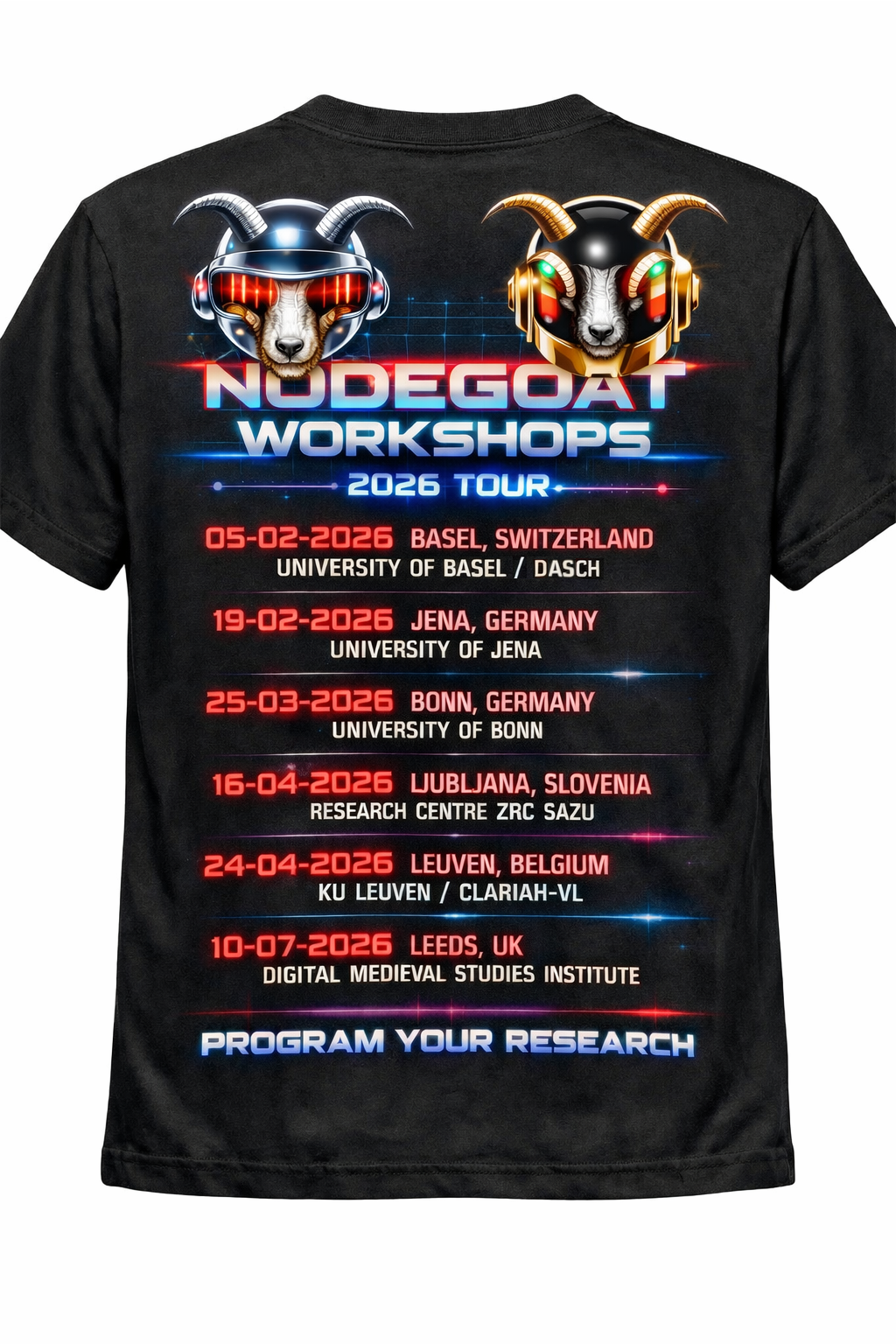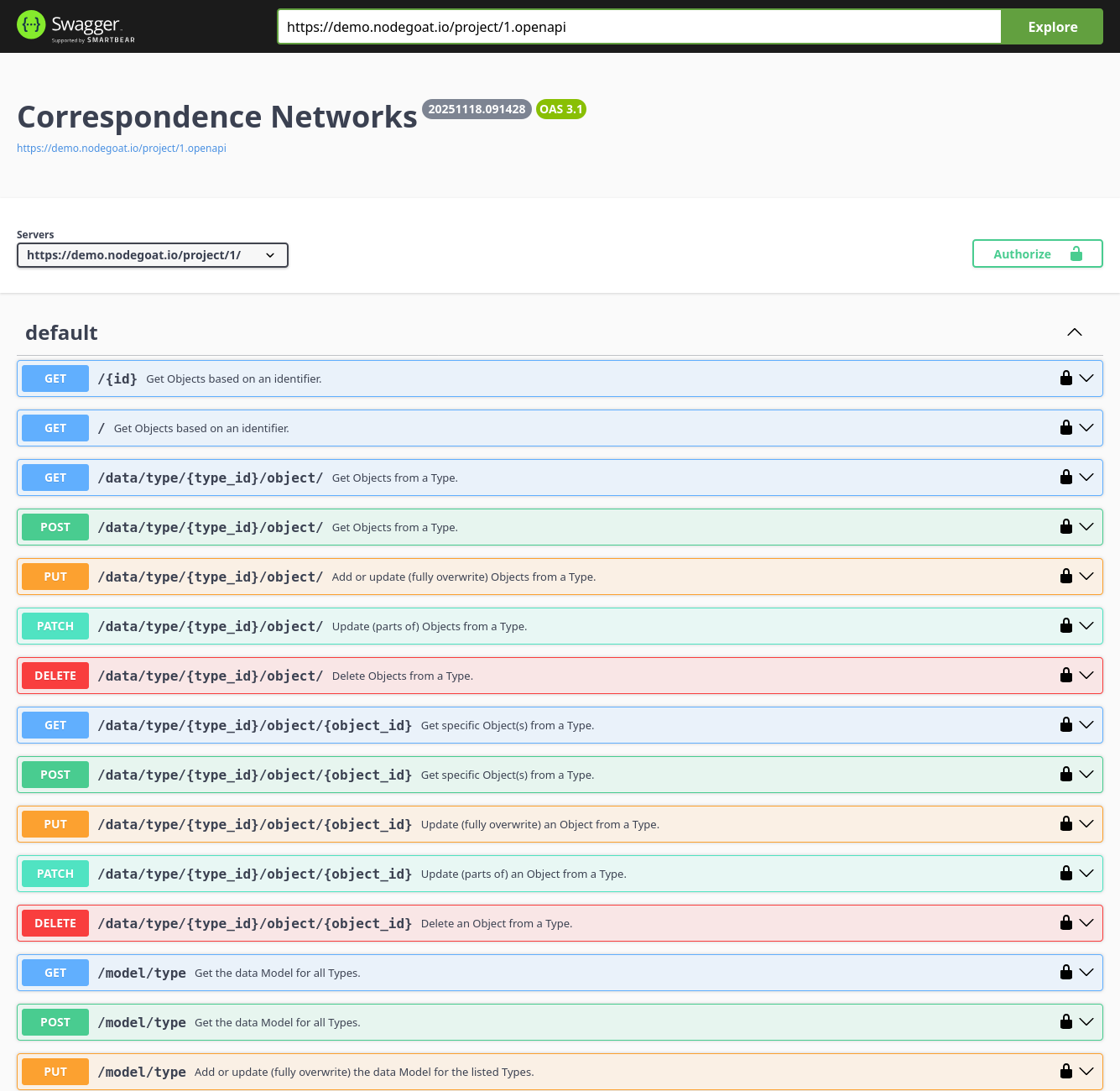LAB1100 joins the Pelagios Network
CORE Admin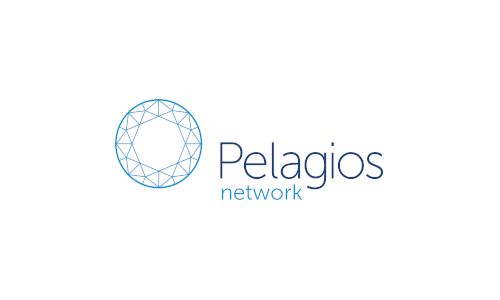
LAB1100 and the Pelagios Network have signed a Memorandum of Understanding. This partnership will help nodegoat users to connect their data to resources available in the Pelagios network and to re-use data that has been created by other Pelagios partners.
LAB1100 will explore best practices on how gazetteer data that has been developed within the Pelagios Network can be ingested and reused by nodegoat users. We will also explore possibilities of exporting data from nodegoat projects to be reused within the Pelagios Network.
LAB1100 will also describe a step-by-step process that users of the Recogito platform can follow to export their data from the Recogito platform and import this into their nodegoat research environment.
The blog post published on the Pelagios blog describes the opportunities for connecting various datasets.
New week = new partner! Today we welcome the good folks @nodegoat (and their goat-wranglers @LAB1100) as one of the latest #NetworkPartners. See this post for more about how they enable #spatial and #chronological analysis of databases https://t.co/Vs4yTJsDtw
— Pelagios (@PelagiosNetwork) August 9, 2021
